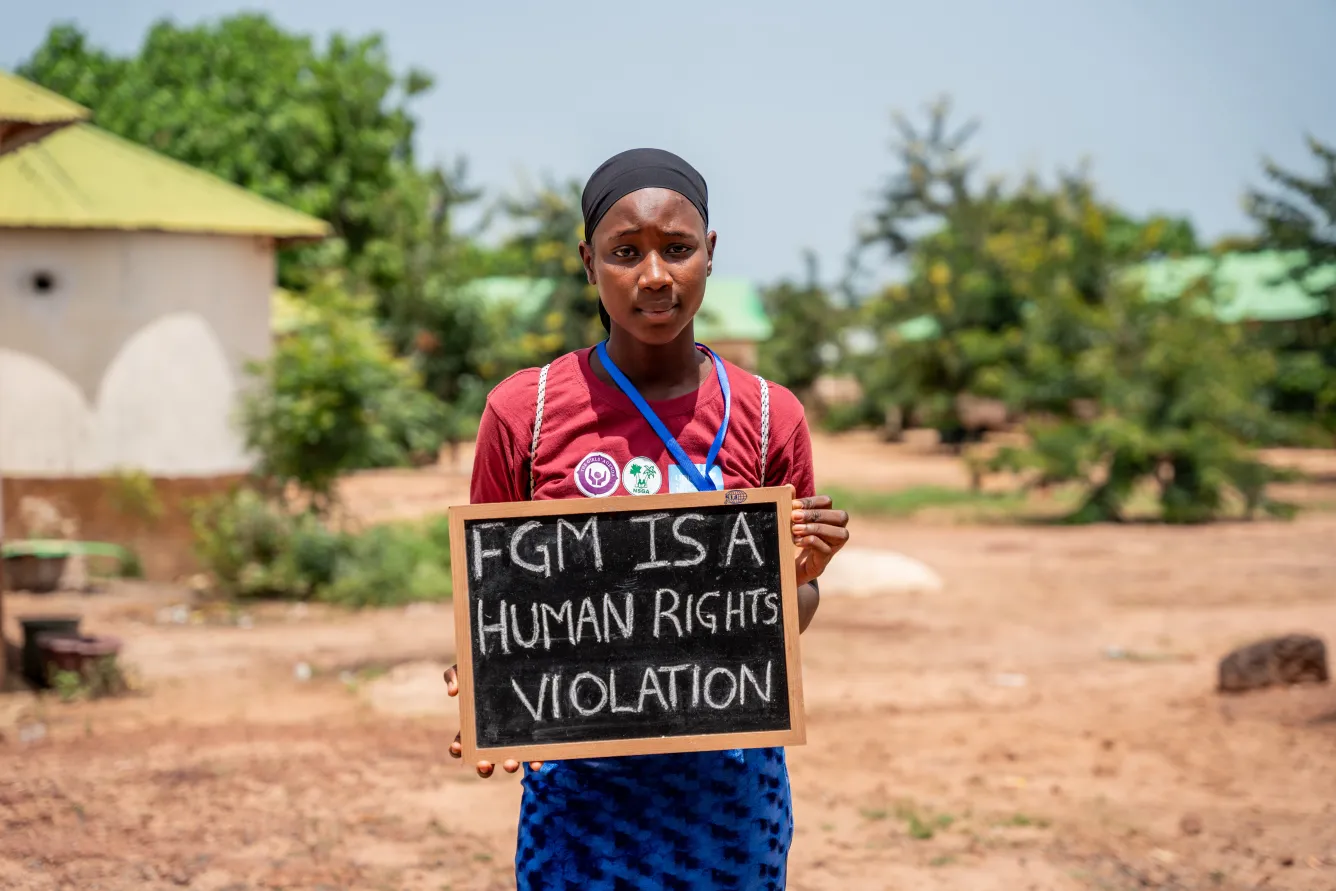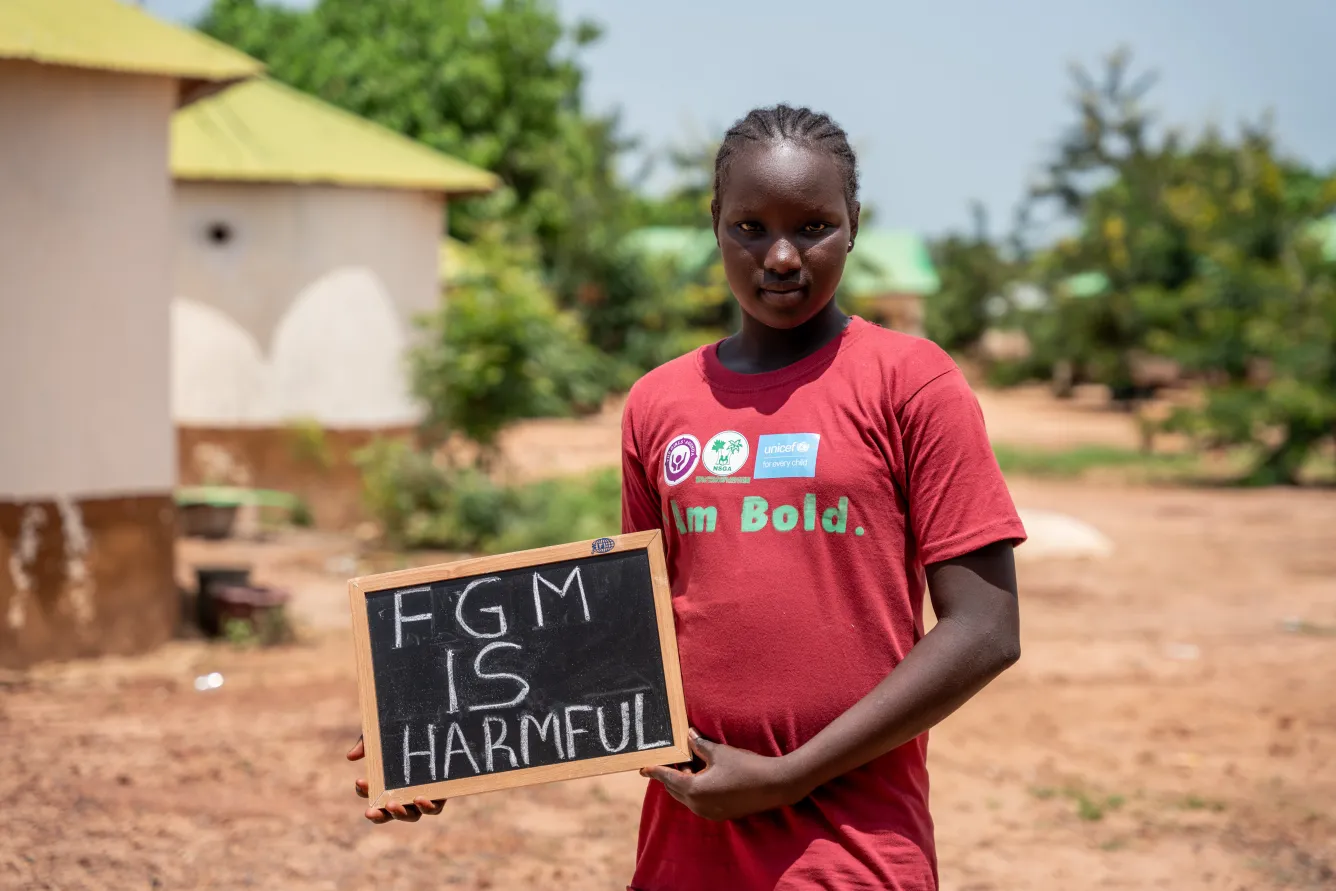Female Genital Mutilation: Combatting the practice
Growing up, Amie (name changed to protect privacy) had frequent painful urinary and vaginal infections. “It wasn’t until I was married that I discovered I was ‘closed.’” Amie was told by her family she had been put through a form of female circumcision where her genital area had been mutilated in childhood.
Over 230 million girls and women alive today like Amie will have undergone some form of female genital mutilation (FGM) around the world. FGM is the partial or total removal of the female external genitalia or some form of mutilation to the female organ for non-medical reasons – it is often carried out on girls between infancy and the age of 15. Every year, over two million girls are subjected to FGM before their fifth birthday.
No matter which way it is performed or what form of genital mutilation a girl undergoes, FGM is a violation of girls’ and women’s fundamental human rights and a systemic form of violence.
Girls who undergo FGM often require critical care – like urgent treatment to stop hemorrhage, antibiotics to quell infections, surgery to address health complications or emergency obstetric care for complicated deliveries.
“I will never forget the pain and suffering,” says Amie. “I continue to suffer and I have not been able to get pregnant. I am convinced that it is because of all the complications I have been suffering because of this FGM.”

FGM around the world
The United Nations Population Fund (UNFPA) estimates that over 4 million girls are at risk of FGM each year, mainly in Africa, Asia and the Middle East. And despite efforts to eliminate the practice, by 2030, nearly one in three girls worldwide will be born in the 31 countries where FGM is most prevalent.
There is hope. Strides have been taken globally to halt the practice. UNICEF and the UNFPA jointly lead the world’s largest program to end FGM, which partners with communities to raise awareness of the harms caused by FGM and to shift societal norms towards collective abandonment – this has led to 14 countries passing national legislation banning the practice.
However, the positive steps taken to shift not only national policies but also societal norms in eliminating this harmful practice were recently under threat when the National Assembly in The Gambia was set to debate on repealing the ban, making it the first country in the world to seek to vote to reverse a ban on FGM. Despite the push to repeal the law, lawmakers voted to uphold the ban.
"In addition to recognizing this critical decision by the national parliament, we commend the tireless efforts of survivors, activists, civil society organizations, and faith-based groups working to end FGM. Upholding the ban supports these grassroots initiatives, which are pivotal in ending all forms of violence," read a portion of a joint statement by UNICEF Executive Director, Catherine Russell, UNFPA Executive Director, Natalia Kanem, WHO Director-General, Dr Tedros Adhanom Ghebreyesus, UN Women Executive Director, Sima Bahous, and UN High Commissioner for Human Rights, Volker Türk.
“Recent months have emphasized the need for continued advocacy to advance gender equality, end violence against girls and women, and secure the gains made to accelerate progress to end FGM."

Progress in tackling the practice
While the world waits to see what happens in The Gambia later in July, progress continues in ensuring more girls don’t have to go under the knife. Since UNICEF and UNFPA launched their joint program in 2008 to combat the practice:
- Over six million women and girls in the 17 countries supported by the program have benefitted from FGM-related protection and care services.
- As a result of community-led engagement through education, dialogue and consensus-building, more than 47 million individuals have made public declarations advocating for the abandonment of female genital mutilation.
- And 691,793 girls were prevented from undergoing the practice thanks to established community-based surveillance mechanisms.
For Amie, her own experience has made her determined to not let FGM impact the next generation. “I don’t have my own child but if I have a daughter, I will never cut her.”
